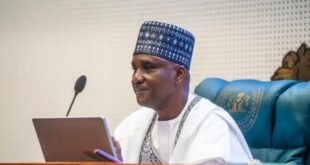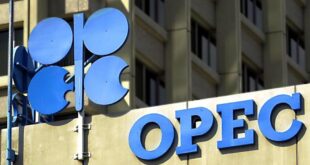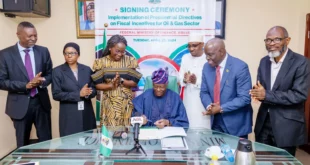————-By Monday Osasah————-
The reform of the Nigerian extractive sector by the Mohammadu Buhari-led administration has come with some air of exhilaration and excitement amongst Nigerians who over the years have been yearning for a change in the sector. The excitement is not to demean the efforts of successive administration to give the sector a new lease of life but because there appear to be a nuanced political will this time, to make the needed change happen relative to the posture and operational approach deployed by previous Nigerian governments.

The extractive sector – oil and gas and solid mineral are huge endowment to the country and have capacity to usher in economic prosperity and make Nigeria compete favourably amongst the comity of nations. But like some other natural resource rich countries, these endowments which are supposed to be a blessing have become a curse, partly due to the absence of a clear governance regime in the sector. Despite this, the extractive is today the commanding height of the nation’s economy because of the contribution of the oil and gas sector. The oil and gas sector contributes over 80 percent to the gross domestic product (GDP), the opacity and absence of legal and regulatory regime notwithstanding. The need to change the narrative, underscores the necessity of the Petroleum Industry Bill bifurcated into four parts (The petroleum industry Governance Bill, The Petroleum Industry licence and lease administration bill, the downstream oil and gas administration bill and the petroleum fiscal and petroleum revenue management bill, which includes the petroleum host community fund) and now greeted with a phased approach to its passage by the National Assembly.
Legal and regulatory regime is important in the oil and gas sector for activities to start happening optimally and for the hopes of prosperity for citizens and the country that it promises to be unleashed. The delay in the passage of the petroleum industry bill has come with some cost to the economy of the nation. International Oil Companies, IOCs, said the continued delay in passing the Petroleum Industry Bill, PIB, into law is creating uncertainties. The uncertainties have consistently delayed the take-off of fresh projects worth several billions of dollars that could grow industry capacity and reserves. For change to happen, Nigeria must resolve its domestic policy issues to attract international petroleum investment funds. This is very crucial and the cooperation of the members of the National Assembly is imperative to achieve this.
Impalpably, the remaining bills that are yet to be passed should be given due attention by members of the National Assembly. The requirement is for NASS members to redouble their effort in the consideration of the bills. Be more driven by patriotism and forestall any form of politics in the consideration of the remaining bills. This is important to further consolidate the gains of the National Bureau of Statistics (NBS) report on latest overview of National Productivity between April-June 2017, which revealed that, the steady decline in output of goods and services, which began in March 2016, has now been thankfully reversed by June 2017. The crash in crude oil prices, in recent years, significantly reduced revenue and therefore impacted negatively on consumer demand and Nigeria’s capacity to produce. Consequently, by March 2016, for the first time in 25 years, gross production and output, invariably began to shrink rather than grow. Ultimately, the negative growth recorded, between January-June 2016, technically pushed Nigeria’s economy into recessionary growth mode, which regrettably prevailed until 2017 with the 0.55% positive productivity growth rate recorded, by June ending 2017.
The report indicated that the economic recovery was driven by improved performance of oil and other ancillary factors. This recovery need to be upscaled by a clear legal and regulatory framework which the passage of the PIB can bring about. Clear legal and regulatory regime undoubtedly, will usher a new lease of life including effective resource governance regime, with roles for government, citizens and other relevant stakeholders. The Open government partnership (OGP) programme which the Nigerian government has signed on to, thus becomes a welcome development as it sure will pave way for openness, transparency and accountability in all spheres and ensure in all ramification robust civic engagement that is crucial for effective natural resource governance in the country.
Effective citizens engagement in governmental activities nay natural resource governance will breed ownership and trust, forestall attacks on oil facilities and elicit increased production in output, leading to more earnings that overall contribute to the economic stabilization of the country. Between the first quarter of 2016 when the Nigerian economy slipped into recession, oil production went as low as 1.3 million barrels. But from June 2017 when the country came out of recession, the daily production figure stood at two million barrels traceable to downward decline of hostilities in the Delta.
That said, these gains can be upscaled by hastening the passage of the remaining bills that make up the Petroleum Industry bill.
Monday Osasah
Programme Director
African Centre for Leadership, Strategy & Development (Centre LSD)
Suite 27, Tolse Plaza, 4, Franca Afegbua Crescent, Apo Abuja.
+234-8037477498
Subscribe to the Advocate News letter and receive news updates daily in your inbox.
 Advocate.ng Latest news update on politics, entertainment, sport and more
Advocate.ng Latest news update on politics, entertainment, sport and more



